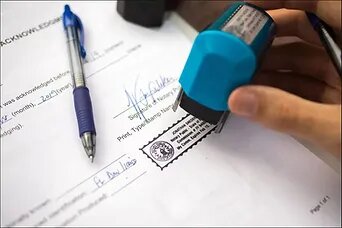 Notary Services
Notary Services

The ADVOCATE provides Notary services for Wills, Trusts, Deeds, Contracts, and Affidavits.
When it comes to notarizing your business and personal documents, the ADVOCATE can get the job done. If you're looking for notary public services in Sergeant Bluff, come to our office in the Pioneer Plaza. Stop by today and get notarizing checked off your list.